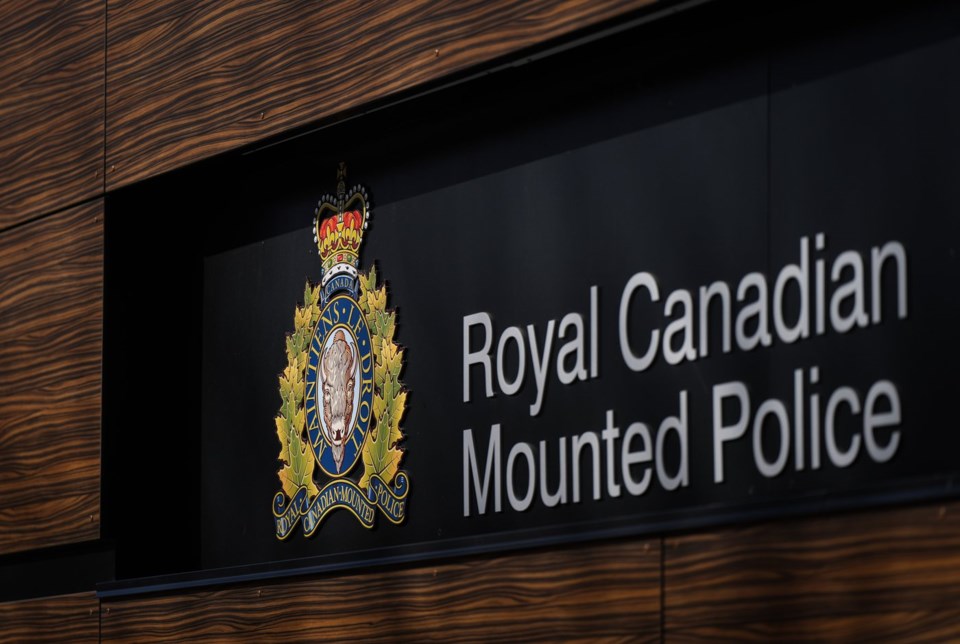The B.C. Supreme Court has found Mounties in Vernon, B.C., committed "numerous and flagrant breaches" of an accused drug dealer's Charter rights, using a hit-and-run investigation as a "ruse" to ensnare him for trafficking.
The court issued separate rulings on evidence collected against Nabil Abdelkader in 2020, a man who had no criminal record and had never been arrested, but police believed he was involved in drug trafficking and was "untouchable."
The rulings arose from a defence application to exclude the evidence unlawfully seized from Abdelkader's vehicle.
In March 2020, a Jeep owned by Abdelkader hit a cyclist in a Vernon parking lot and two passengers got out and assaulted the rider after he was struck, the rulings say.
The driver and the attackers were never identified, but after Abdelkader's name came up as police looked into the hit-and-run and assault, the court found Vernon RCMP drug investigators took up the case "even though it was 'typically' outside of the mandate of the drug unit, solely because of the involvement of Mr. Abdelkader’s vehicle."
The rulings say police seized the vehicle from Abdelkader's garage and referred it to B.C.'s Civil Forfeiture Office for possible seizure if police weren't able to lay criminal charges.
Initial searches of the vehicle found no drugs, the rulings say, but police worked with B.C.'s Civil Forfeiture Office to keep it, and the court found civil forfeiture officials filed an "unsupportable" claim to seize the vehicle.
Justice Palbinder Kaur Shergill found police colluded with civil forfeiture authorities to "bypass" due process obligations to avoid giving back the Jeep, which contained a hidden aftermarket compartment where police found vacuum-sealed packages of narcotics.
Mounties hadn't obtained a search warrant to remove the compartment or its "hidden" contents when they searched it in October 2020, months after concluding the hit-and-run investigation that didn't result in any charges, the rulings says.
"The RCMP did not even bother seeking judicial authorization for the October search because they knew their efforts would be rejected," the ruling says, recounting the testimony of a Vernon RCMP officer.
The judge found police actions "intrusive," and ruled the hidden compartment was Abdelkader's "private space — a locked compartment in which a reasonable person would ordinarily expect the utmost privacy."
Crown prosecutors argued the search was justified for public safety reasons, but "significant inconsistencies in the officers’ testimony, which have led me to conclude that the public safety justification here was far fetched and after-the-fact," Shergill wrote.
"Launching a drug investigation under the guise of investigating a hit and run goes far outside the scope of what the community would see as decent and fair," the judge ruled. "No matter how violent and horrific the crime, or suspected crime, the ends do not justify the means."
Shergill found "clear evidence of the institutional effort by the police to circumvent" Abdelkader's rights as they made moves with civil forfeiture officials to keep the Jeep.
The court found police demonstrated a "pattern of disregard" for Abdelkader's Charter rights throughout the investigation.
"The RCMP worked with the (Civil Forfeiture Office) in a co-ordinated and intentional effort to undermine Mr. Abdelkader’s due process rights," the judge ruled. "This conduct was extremely troubling, and driven by 'personal' and 'improper" motives."
Abdelkader was arrested in January 2022, the rulings say, and charged with two counts of possession of cocaine and methamphetamine for the purpose of trafficking.
The court found police named him in a news release after his arrest, causing "significant impact' since he lives in a small community.
Shergill found police "committed numerous and flagrant breaches" of the man's Charter rights and an "abuse of process" during the investigation, and excluded the evidence found in the secret compartment of his Jeep.
"If the evidence is included, it will send a clear message that so long as the police are motivated by their desire to catch the 'bad dudes,' they have free rein to violate well-established principles of law, in an orchestrated and systemic fashion, and by eliciting the assistance of other government agencies to circumvent the accused’s legal rights," Shergill ruled in a decision dated Feb. 4.
Abdelkader's lawyer Tony Paisana said the court's findings in the case are "significant and unusual," and his client is trying to put the years-long legal ordeal behind him. "He's just relieved to move on with his life at this point," Paisana said.
The federal Public Prosecution Service of Canada said it is "currently reviewing the court’s decision and has 30 days to consider whether an appeal is in the public interest."
The B.C. Civil Forfeiture Office did not immediately respond to a request for comment on the court decisions.
RCMP spokesman Staff Sgt. Kris Clark said in a statement that the police force does not comment on court decisions, and directed questions about court processes to the prosecution service.
"The RCMP acknowledges and respects the court’s findings and is in the process of reviewing the decision," the statement said.
This report by The Canadian Press was first published Feb. 7, 2025.
Darryl Greer, The Canadian Press



